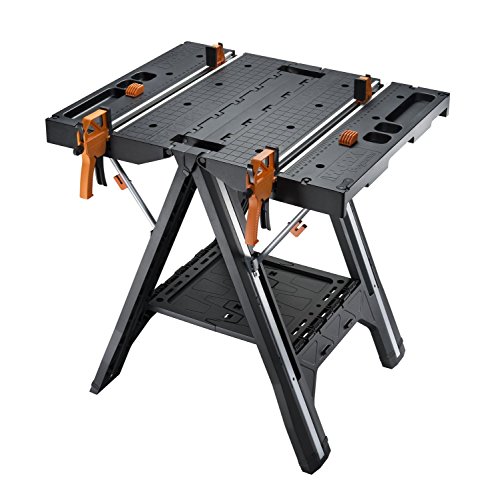Evaluate your needs and workspace
When choosing the right workbench for your workshop, it’s important to first evaluate your needs and the available workspace. Consider the type of projects you will be working on, the tools and materials you will need to support those projects, and the amount of space you have available in your workshop.
For example, if you primarily work on small DIY projects, a compact and portable workbench may be more suitable. On the other hand, if you work on larger projects or need ample storage space for your tools and materials, a larger, sturdy workbench with built-in cabinets or drawers may be a better fit.
Take measurements of your workshop and carefully consider how the workbench will fit into the space. Think about whether you will need to move the workbench around frequently or if it will have a permanent place in your workshop.
By evaluating your needs and the available workspace, you can better determine the size, style, and features of the workbench that will work best for you.
Consider the materials and construction
The materials and construction of a workbench are crucial factors to consider when making your selection. The workbench should be built with durable materials that can withstand the demands of your projects and support the weight of your tools and materials.
Workbenches made from solid hardwood, such as oak or maple, are known for their sturdiness and longevity. These materials can also provide a smooth and durable work surface.
When it comes to construction, look for workbenches that have strong joints and reinforcements. Welded or bolted steel frames are common options for extra stability and durability. It’s also important to consider the weight capacity of the workbench, especially if you will be working with heavy materials or tools.
Additionally, think about the surface of the workbench. Some workbenches come with a laminate or melamine surface, which is easy to clean and resistant to scratches and chemicals. Others may have a hardwood surface that can be sanded and refinished if necessary.
By considering the materials and construction of the workbench, you can ensure that it will be able to handle the demands of your projects and provide a sturdy and reliable workspace.
Determine your budget
Before making a decision on the right workbench for your workshop, it’s important to determine your budget. Workbenches can vary widely in price, depending on their size, materials, and features.
Setting a budget will help you narrow down your options and prevent you from overspending. Consider how much you are willing to invest in a workbench, keeping in mind that a high-quality workbench can be a long-term investment that will last for years to come.
Keep in mind that while a lower-priced workbench may be tempting, it may not have the durability, features, or weight capacity that you need. Always balance your budget with the quality and functionality of the workbench.
Research different brands and compare prices to find a workbench that fits within your budget while still meeting your needs and requirements.
Read reviews and gather recommendations
One of the best ways to gather information about a workbench is to read reviews from other customers and gather recommendations from fellow woodworkers or DIY enthusiasts. These sources can provide valuable insights into the quality, performance, and durability of different workbenches.
Look for reviews on websites like Amazon, where customers often share their experiences and opinions on products. Pay attention to any common complaints or issues raised by customers, as this can help you make an informed decision.
In addition to reading reviews, reach out to fellow woodworkers or DIY enthusiasts in online forums, social media groups, or local workshops. Ask for their recommendations and any advice they may have when it comes to choosing the right workbench for your needs.
By gathering reviews and recommendations, you can gain a better understanding of the pros and cons of different workbenches and make an educated decision.
Consider additional features and accessories
Finally, consider any additional features and accessories that may enhance your workbench and improve your overall productivity in the workshop.
Some workbenches come with built-in lighting, power outlets, or tool storage options, which can be convenient for easy access to your tools and providing proper lighting for your projects.
Think about whether you will need a workbench with adjustable height or a tilting work surface, which can offer greater versatility when working on different projects.
Accessories such as bench dogs, vices, or clamping systems can also be useful additions to your workbench, depending on the type of projects you will be working on.
Consider your specific needs and the tasks you will be performing in your workshop to determine which additional features and accessories will be most beneficial to you.






